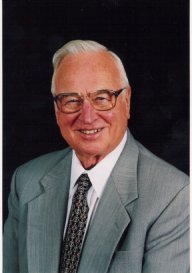My PBL Odyssey (Part 4): Tomorrow and Tomorrow and Tomorrow? Education of an Educator--The Saga Continues
By Joe Oakey
Reprinted from PBLNEWS, October 1997

My PBL Odyssey (Part 4): Tomorrow and Tomorrow and Tomorrow? Education of an Educator--The Saga Continues
|
 |
Readers of previous installments in this series have asked me a good question: Why, they say, if I hated learning so much, did I become an educator?
The short answer is, I never hated learning, it was schooling I disliked, and in many cases, even today, schooling cannot be equated with learning. In fact, in some ways, as we all know, school can inadvertently interfere with learning.
Consider, for example, a common experience--a student's first encounter with Shakespeare. By the time I reached my senior year, I had been exposed to two of Shakespeare's play and I actively dreaded the prospect of being subjected to another one. It was at that point, of course, that my teacher announced that she planned to help us "enjoy" (?!) Macbeth.
Shortly after we began working on the play-memorizing it, reciting it, and acting it out--the principal invited me and another student to accompany him to two performances by a Shakespearean company in a nearby city. Unexcited as I was at this prospect, he was the principal, so I reluctantly agreed.
The first performance, which I do not remember very clearly, might have been Two Gentlemen of Verona. The second performance, which I do remember vividly, was Macbeth. What I remember most is that seeing Shakespearean plays performed as they were intended to be, in one long more or less continuous experience, rather than chopped up into arbitrary 45-minute chunks, was a revelation.
(It still strikes me as mildly ironic, by the way, that my initial exposure to Macbeth can be so eloquently summed up by these words from the play itself:
Tomorrow, and tomorrow, and tomorrow,
Creeps in this petty pace from day to day
To the last syllable of recorded time.
--Act 5, Scene 5, lines 19-21)
On the way home, the three of us talked about the striking contrast between what we had just witnessed and our experience in the classroom. We realized that much of the reason the play seemed to unrewarding in class was that we did not have the opportunity to grasp it as a whole, to feel its overall shape and structure. As a consequence, we were remarkably bad at interpreting, reading, and performing it. Shakespeare's language, his sense of drama and conflict, his insights into the human condition--all the things that make his work so moving--were lost on us.
It is plain that learning cannot always take place in disconnected, time-bound slots. So, as I and others in the PBL community have asked for some time now, why not change the structure? Why not take half a day or more each semester for learning experiences that work best when they occur in their entirety? Projects often require this kind of release from the typical schedule, and it can be a critical step in making the experience as rewarding and productive as possible.
About the Author:
Joe Oakey is President Emeritus of the Autodesk Foundation.